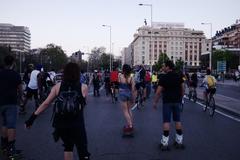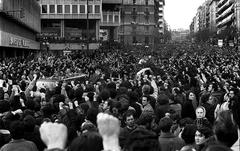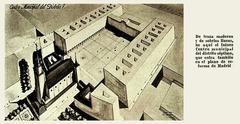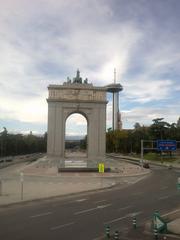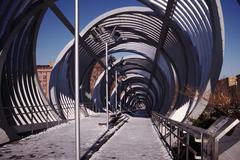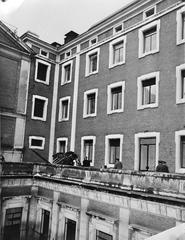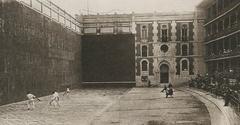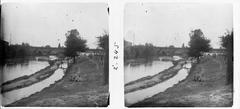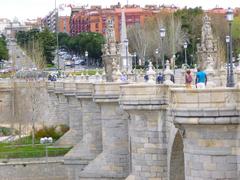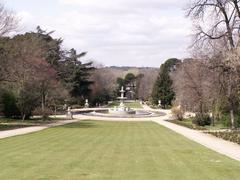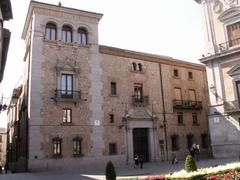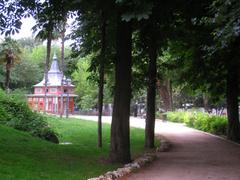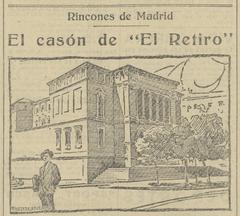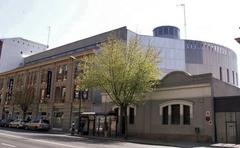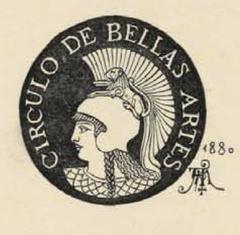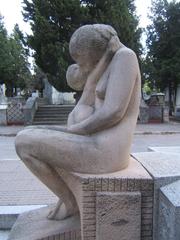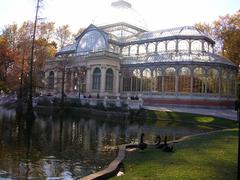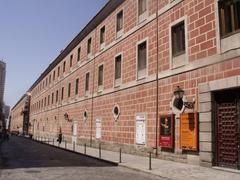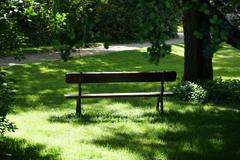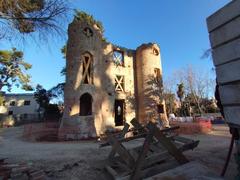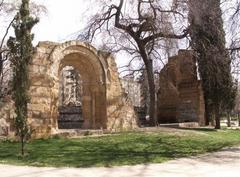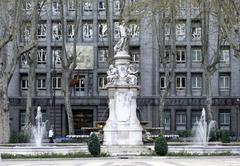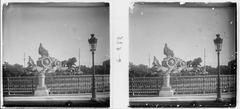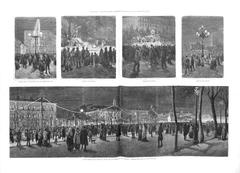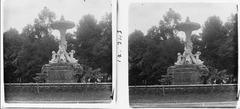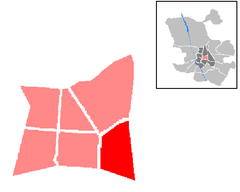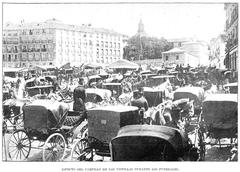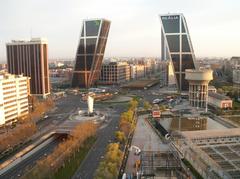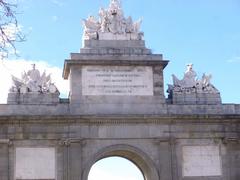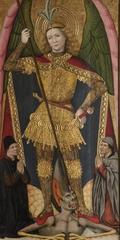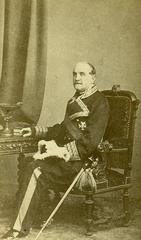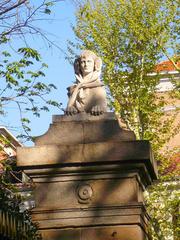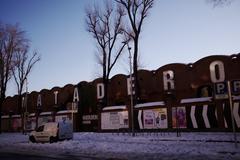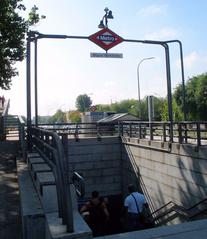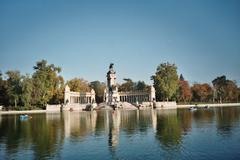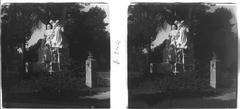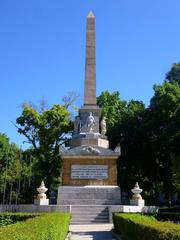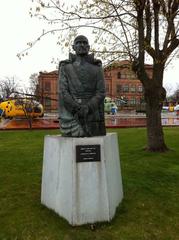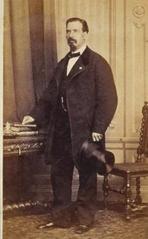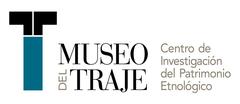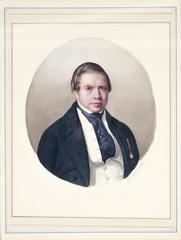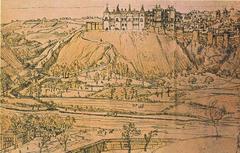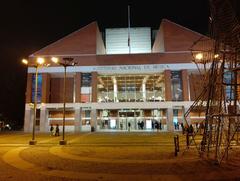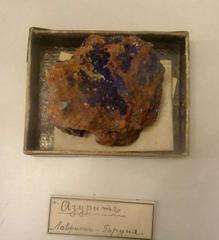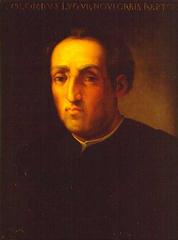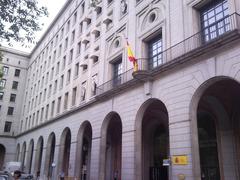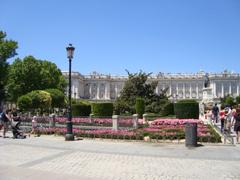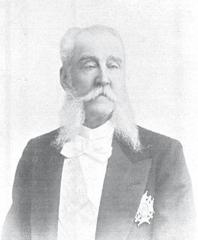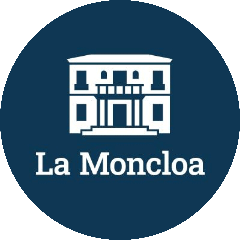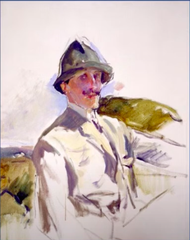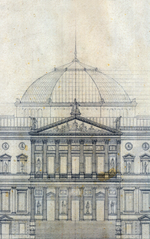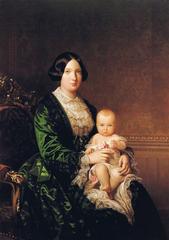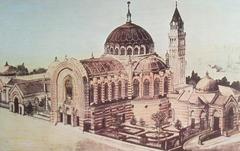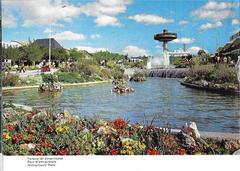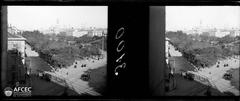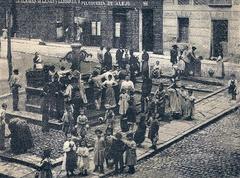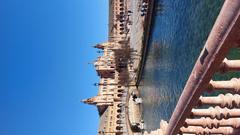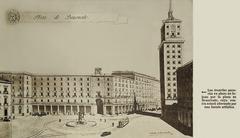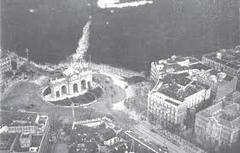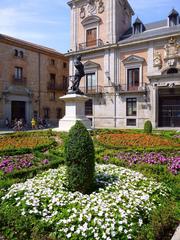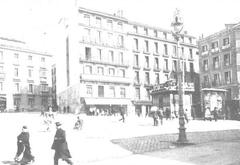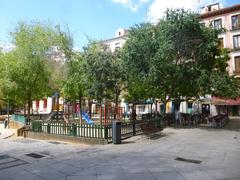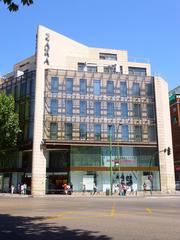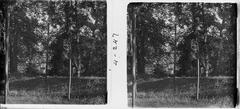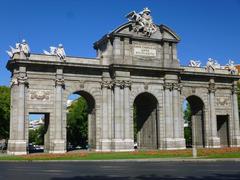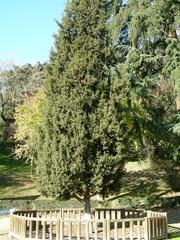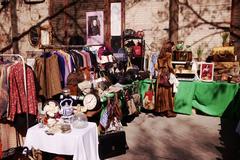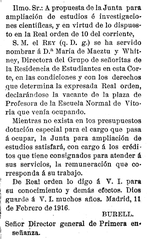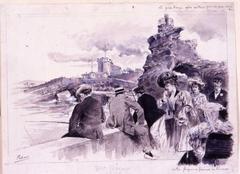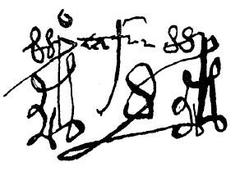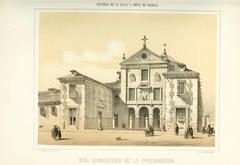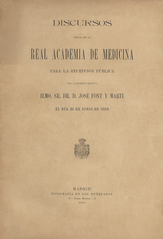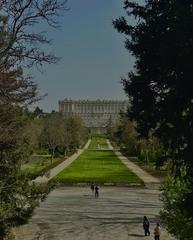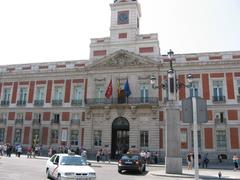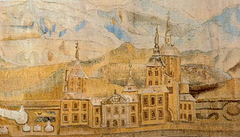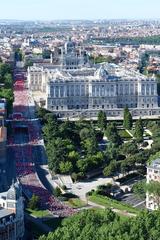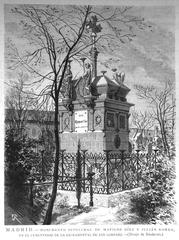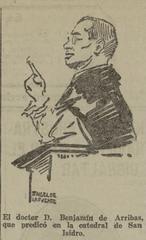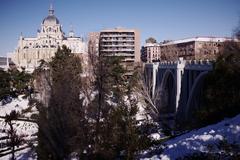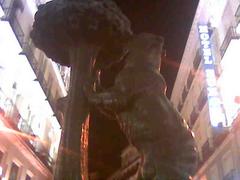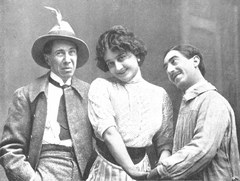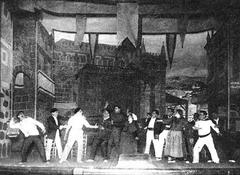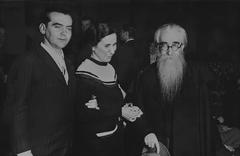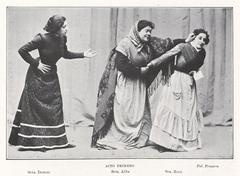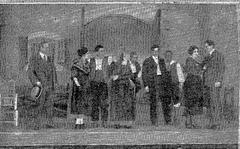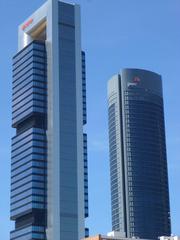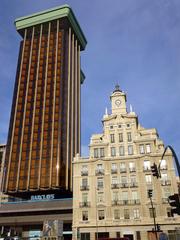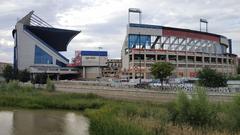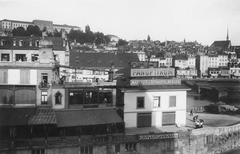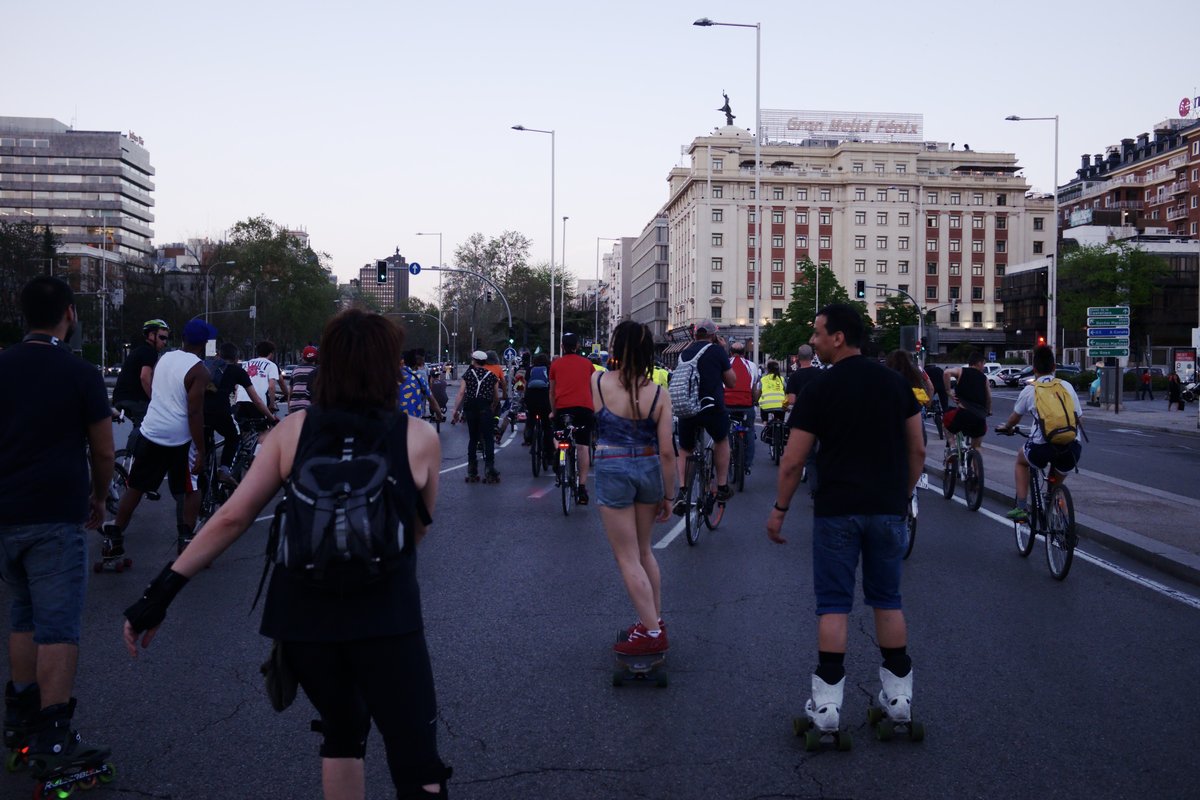
Paseo de Recoletos Madrid: Visiting Hours, Tickets, and Guide to Historical Sites
Date: 14/06/2025
Introduction
Paseo de Recoletos, nestled in central Madrid, is one of the city’s most emblematic boulevards. Stretching from Plaza de Colón to Plaza de Cibeles, this tree-lined avenue is celebrated for its blend of historical depth, architectural beauty, and vibrant contemporary life. Originating from a 17th-century monastic landscape, Paseo de Recoletos has evolved into a cultural corridor brimming with museums, literary cafés, lush gardens, and public art. This guide provides comprehensive information on visiting hours, ticketing, accessibility, travel tips, and the boulevard’s rich historical and cultural significance.
Table of Contents
- Introduction
- Visiting Information
- Historical Overview
- Architectural and Urban Features
- Cultural Venues and Events
- Practical Visitor Tips
- Frequently Asked Questions (FAQ)
- Conclusion
- References
Visiting Information
Hours and Accessibility
-
Boulevard Access: Paseo de Recoletos is a public space, open 24 hours daily for pedestrians and cyclists.
-
Cultural Institutions:
- Biblioteca Nacional de España (National Library): Tuesday–Saturday, 10:00 AM–8:00 PM; Sunday, 10:00 AM–2:00 PM; closed Mondays.
- Fundación MAPFRE Recoletos Exhibition Hall: Tuesday–Sunday, 11:00 AM–7:00 PM; closed Mondays.
- Museo Arqueológico Nacional: Tuesday–Saturday, 9:30 AM–8:00 PM; Sunday, 9:30 AM–3:00 PM; closed Mondays.
-
Accessibility:
The boulevard features wide, paved walkways and gentle gradients, suitable for wheelchairs and strollers. Major museums and venues are equipped with ramps, elevators, and adapted restrooms. Accessible public transport is available nearby (motion4rent.com).
Ticketing Details
- Boulevard: Free access at all times.
- National Library: Free entrance; special exhibitions may require a ticket.
- Fundación MAPFRE: General admission ~€5; discounts available for students, seniors, and free days (often Sundays). Online booking is recommended (Fundación MAPFRE).
- National Archaeological Museum: General admission €3; free on Saturdays after 2:00 PM and Sundays. Tickets are available online.
Transportation
Paseo de Recoletos is centrally located and easily reached via:
- Metro: Colón (Line 4), Banco de España (Line 2), Retiro (Line 2).
- Bus: Multiple lines stop along or near the boulevard.
- Commuter Trains: Recoletos station.
- Bike Sharing: BiciMAD stations at Biblioteca Nacional and Calle Prim (esmadrid.com).
Historical Overview
Origins and Urban Development
The area now known as Paseo de Recoletos began as a monastic estate in the late 1500s, named after the Convento de los Agustinos Recoletos. By the 17th century, gardens and orchards lined the banks of the Arroyo de la Fuente Castellana, gradually giving way to a tree-lined promenade.
18th- and 19th-Century Transformations
King Charles III’s urban reforms in the 18th century, especially the Salón del Prado project, reshaped the boulevard into a grand avenue featuring elegant landscaping and monumental fountains. The 19th century brought further change: after the convent’s demolition during the Desamortización, aristocratic palaces, cultural venues, and literary cafés flourished, cementing Recoletos as a social and cultural hub (Lucas Fox).
Cultural and Social Evolution
Across the 19th and 20th centuries, Paseo de Recoletos hosted gatherings of Madrid’s elite, literary circles, and artists. Its historic cafés, especially Café Gijón (since 1888), became renowned meeting places for intellectuals. The boulevard witnessed historic events from the Peninsular War to the Spanish Civil War, reflecting Madrid’s transformation into a cosmopolitan capital.
Architectural and Urban Features
Notable Landmarks
- Plaza de Colón: Home to the Monument to Columbus, Jardines del Descubrimiento, and the Spanish national flag (Madrid Proyecta).
- National Library of Spain: Neoclassical façade, grand staircase, and vast literary collections. Free entry; guided tours and exhibitions available.
- National Archaeological Museum: Adjacent to the library, featuring Iberian, Mediterranean, and Spanish artifacts (Earth Trekkers).
- Monument to the Fallen for Spain: Granite obelisk and eternal flame in front of the National Library.
- Cibeles Fountain and Plaza de Cibeles: Iconic neoclassical fountain and architectural ensemble, including the Palacio de Cibeles (City Hall).
Gardens, Fountains, and Sculptures
- Central Promenade: Landscaped with mature plane trees, gardens, and shaded seating areas.
- Fuente de Apolo: Neoclassical fountain depicting Apollo.
- Public Art: Statues of Ramón del Valle-Inclán, Juan Valera, and the whimsical Lucky Frog by dEmo.
- Palacio de Linares and Palacio de Buenavista: 19th- and 18th-century palaces, now housing Casa de América and the Spanish Army’s General Staff.
Cultural Venues and Events
- Fundación MAPFRE: Hosts rotating art and photography exhibitions, including retrospectives on global artists and thematic shows such as “1924. Otros Surrealismos” (Fundación MAPFRE).
- Historic Cafés: Café Gijón and Café del Espejo, celebrated for their literary heritage and refined terraces.
- Annual Book Fairs: The Feria del Libro Antiguo y de Ocasión and Feria de Otoño del Libro Viejo y Antiguo fill the boulevard with stalls, signings, and cultural programming (Madrid Traveller).
- Art Installations and Seasonal Festivals: Regular outdoor art, parades, and city celebrations, especially during San Isidro and Madrid Pride.
Practical Visitor Tips
- Best Time to Visit: Spring and autumn offer pleasant weather and vibrant events (mindfultravelbysara.com).
- Crowds: Early morning and late afternoon are quieter; weekends and festivals are busiest.
- Dining: Enjoy traditional pastries or tapas at historic cafés; nearby neighborhoods like Salamanca and Chueca provide diverse culinary options (mintnotion.com).
- Safety: The area is safe, but stay alert for pickpockets during busy events (easytravel4u.com).
- Language: English is spoken at most attractions, but basic Spanish phrases are helpful.
- Booking: For major exhibitions or tours, book tickets online in advance for the best availability and rates.
- Budget: Expect average daily expenses of around €107 ($104); many museums offer free or discounted entry on select days.
Frequently Asked Questions (FAQ)
Q: What are the opening hours for Paseo de Recoletos and its main attractions?
A: The boulevard is open 24/7. Museums generally operate Tuesday–Sunday, 10:00 AM–7:00 or 8:00 PM. Check official sites for exact times.
Q: Are there entrance fees?
A: The boulevard and most outdoor landmarks are free. Some museums require tickets; discounts and free days are often available.
Q: How do I get there?
A: By metro (Colón, Banco de España, Retiro), bus, or commuter train (Recoletos station). Bike-sharing is also available.
Q: Is the area wheelchair accessible?
A: Yes, with adapted walkways and facilities at major sites.
Q: Are guided tours offered?
A: Yes, local operators provide walking tours; guided and virtual tours are available at museums.
Conclusion
Paseo de Recoletos is an essential Madrid destination, encapsulating the city’s historical evolution, artistic richness, and lively public life. Its accessible layout, iconic landmarks, and cultural venues make it ideal for visitors seeking both relaxation and enrichment. For the latest information, guided tours, and event updates, consult official resources and download the Audiala app.
Visuals and Resources
- Alt tags for images: “Paseo de Recoletos historic boulevard with tree-lined promenade and fountains in Madrid,” “Interior of Fundación MAPFRE showing art exhibition.”
References
- Fundación MAPFRE – 1924 Otros Surrealismos
- Lucas Fox – Madrid Developments
- Madrid Traveller – Things to Do in Madrid in June
- esmadrid.com – Paseo de Recoletos
- esmadrid.com – Events at Fundación MAPFRE
- Mint Notion – Madrid Travel Tips
- Madrid Proyecta – Plan Especial Recoletos-Prado
- Earth Trekkers – Best Things to Do in Madrid
- Motion4Rent – Guide Madrid in Wheelchair
- Mindful Travel by Sara – Tips Before Visiting Madrid
- EasyTravel4U – Safest Areas to Stay in Madrid
